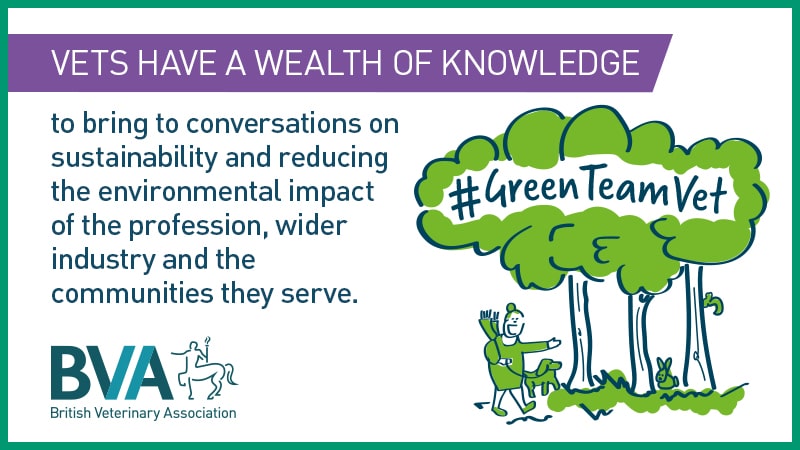Brucella canis: what vets need to know
14 Feb 2024
18 Feb 2022 | Nina Rossi
Nina Rossi, BVA’s Media Manager, outlines what recent Voice of the Veterinary Profession survey statistics tell us all about making time to improve environmental sustainability.

When my plate is completely full, with competing pressures at work and at home, the last thing I feel I want to do is add another chore, another ‘should do’, another source of guilt. And the temptation is to either rail against those making the additional demands or to simply ignore it altogether and let that guilt fester quietly while I crack on with more urgent tasks. ‘Don’t they know how busy I am?’ ‘Can’t they see that there’s no more time in my day?’
When we carried out our Voice mini-survey on sustainability last summer, 97% of vets told us that environmental sustainability was either very (62%) or quite (35%) important to them. We all know that we should be doing more to protect our planet but, with the profession under such enormous strain, it can be tempting to push the issue to one side or to promise yourself you’ll make changes another day. Even considering where to start can feel like one task too many. But at the same time, vets across the board generally recognise that the profession has some unique opportunities to make a real difference.
Using the Greener Veterinary Practice Checklist as a starting point, we asked what members saw as the greatest opportunity to improve environmental sustainability in their own role. Unsurprisingly, there was a clear difference in views between vets depending on where in the profession they worked.
Two-thirds of companion animal vets (65%) thought that reducing the direct impacts of veterinary businesses and organisations was the greatest opportunity to improve environmental sustainability, and those in mixed practice (57%) and equine roles (44%) tended to agree. Meanwhile, large or production animal vets (67%) were much more likely to say that promoting and developing more sustainable agriculture was the greatest opportunity.
Those not in clinical practice picked a range of options but were much more likely to say that collaboration with other One Health professionals was their greatest opportunity to promote sustainability (13% versus. 3%), compared to colleagues in clinical roles.
One thing that shone through from the statistics was that vets know that they could be having a significant impact, would like to do more and already have a strong understanding of what area of change would be most effective. Some of these areas sound huge, but all of them can be broken down into smaller, more achievable adjustments.
While it may feel like hard work initially to identify what that should look like in practice, our survey results show that your own team is probably the best source of inspiration on where to start. Speaking with colleagues you think might also be interested in these issues and setting aside half an hour to look through the Greener Veterinary Practice Checklist will get the ball rolling, without adding too much onto any one person’s mental ‘to do’ list.
To join the Voice of the Veterinary Profession survey panel simply login to MyBVA on the BVA website and subscribe via the ‘My Voice’ tab in your member dashboard.
Once you've decided where to start, commit to it by signing up to our sustainability pledge, and tell everyone you’ve done it using #GreenTeamVet on social media.
Get tailored news in your inbox and online, plus access to our journals, resources and support services, join the BVA.
Join Us Today